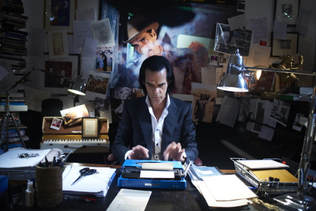 By Charles Harris Your script is complete. Everything works - but there is one more thing that you absolutely must deal with before you send it out. If you've been following this series of blogs from the start, you've taken your idea from first spark to final draft, step by step, and learned a great deal about your story along the way. You've honed the premise until it had that spark that lit up when you pitched it. You developed it into an outline that worked, with an intriguing beginning, a dynamic middle and a surprising yet satisfying end. You've created a first draft that was a mess, but contained a few hidden gems. You edited for structure, character, scene dynamics, dialogue and description until the whole screenplay worked from fade up to fade out. In the previous draft, you faced up to the "X Factor" - the one thing (perhaps more than one thing) you've been putting off dealing with. One more thing... It's done and ready to send out. Yes? Not quite. Because you only get one chance to sell your script to any one buyer. And if there's an obvious flaw that you've missed, then you've blown it. Before you send it out, you need feedback. So far you've been doing this all on your own. You've been writing - to quote Stephen King - "with the study door closed." Now it's time to open up. Screenwriting is a collaborative art, and no script has ever succeeded without feedback. Now is the time to get it. If you thought the previous steps were scary, this will be the scariest yet. Nobody likes getting feedback. The only thing worse than negative feedback is no feedback! We all want to believe our writing is brilliant and unimprovable. And we're all wrong. Even the greatest novelists have editors. The greatest playwrights listen to their actors and directors. Better that you know the problems now, before you've tried to sell the script, than after, when it's too late. But listening to feedback is an art in itself. Not every response is right. Not every suggestion should be followed. How do you know which to listen to and which to ignore? First, take the process step by step. Before you send off for a report, tidy the draft. Check carefully for typos and spelling mistakes. Put it in the right format - this is crucial (if you aren't sure about screenplay format, I've written a simple guide and a couple of templates that you can download for free here). Check also for inconsistencies (such as characters whose names change) and factual errors (Dr Google is a great help here). Then , If you've never had feedback before, begin slowly. Start with a couple of friends, who will (hopefully) let you down lightly. What do you want to know? If they've never read a screenplay before, you may have to give them some guidance. Suggest they imagine their favourite actors in the roles. Ask them to be constructive (not "this sucks" but "here's a place you could improve!") I also like to give them some questions to think about, such as "Pause at page 10. What do you think is about to happen? What do you think of Josie? Do you care about her?" Etc. Give them a reasonable time to read the script and then allow yourself time to make any changes that seem to be indicated (see below). This may entail retaking all the steps from first idea onwards. But if so, don't complain, celebrate. You're making it better. Bring on the pros Once you've gone though all this, you must get professional feedback. Useful as friends may be, they probably don't know the industry. And even if they do, they want to be nice. Even after all my years and awards, I still get at least two professional reports on any screenplay or novel before I send it. And there are always issues that come up. The one time I didn't, I ended up spending two years after filming, fixing the problems that should have been spotted in the script - at far greater expense! Of course, not even the best feedback must be listened to and evaluated. My rule is you have to listen when they say something needs to be fixed - but you don't have to agree with their suggestion of how to fix it! Sometimes, you just know a criticism is wrong. Sometimes, you just know it's right! Especially if you find yourself getting angry or defensive. That's always a good sign that you need to listen. Sometimes, it's right to follow recommendations - sometimes the opposite will work just as well. Sending one comedy script for feedback, I was told I should make it funnier. In fact, I made it more serious. The resultant balance of light and dark actually made the remaining comedy work better. And then you really are finally done You've listened to the feedback. You've decided what it means. You've taken note. You've made the necessary changes. You're finished. Celebrate. Well done! You've done something that most people never do - however much they talk about it. You've written a professional, polished screenplay. Start researching the right people to send it to - and begin sending it out. And while you're doing that - start work on the next.... <previous Charles Harris' best-selling satirical thriller novel The Breaking of Liam Glass is out now, published by Marble City Publishing. It has been selected as Finalist for a Wishing Shelf Book Award
0 Comments
|
BLOGTHE ONLY PLACE TO TALK ABOUT THE CRAFT OF SCRIPTWRITING.
|
Privacy Policy © Euroscript Limited 2020

 RSS Feed
RSS Feed


